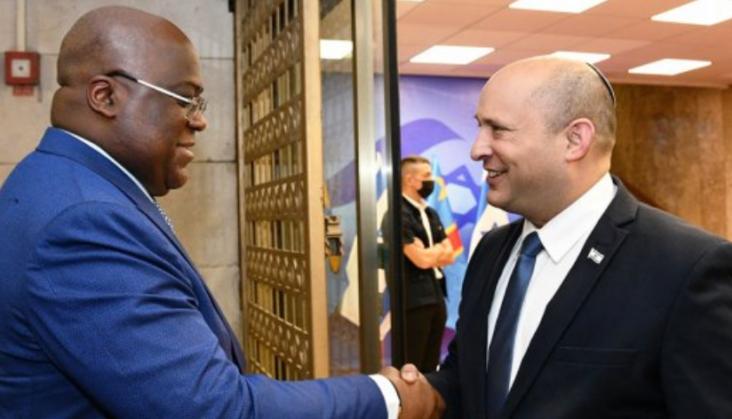Africa-Press – Lesotho. Israel is preparing to open a new chapter in its long relationship with the continent by obtaining observer status at the AU in February 2022. First granted last July, this accreditation was denounced in September by more than 20 member countries, which were upset that Moussa Faki Mahamat had presented it as a fait accompli.
The AU Commission’s chairperson had no choice but to reconsider his position. The question will be put to all 55 member states at the next heads of state summit in Addis Ababa in February 2022.
A formality? This is seen as ‘a formality’ by several Israeli observers, who believe that they have a majority of support within the pan-African organisation.
Officially, Israel has not had this many African friends in decades. “You have to go back to the 1950s, when Israel had more than 30 embassies across the continent,” says researcher Emmanuel Navon.
At the time, the country was a member of the Organisation of African Unity (OAU) with observer status, which it is now seeking to recover. It was stripped of this status in 2002, when the continent decided to establish the AU
Since the 1973 Arab-Israeli war, the continent has been united on the Israel issue. In the aftermath of the conflict, all African countries officially broke off diplomatic relations with Tel Aviv, encouraged by an OAU largely under the influence of the continent’s Arab countries.
20 years after Israel’s forced departure, the most ardent opponents of its return are still the same.
There are just fewer of them than in the past, as their numbers diminished when Tel Aviv normalised its relations with the continent in the wake of the 1993 Oslo Accords. The Palestinian cause Ailing Libya obviously no longer wields the same influence at the AU as it did during Muammar Gaddafi’s time.
However, Algeria quickly spoke out against the “obviousness” of the commission’s decision and rallied the vast majority of the continent’s Muslim countries, from Mauritania to Djibouti, around it.
Only Morocco and Sudan, which are in the process of entering into an increased understanding with Israel, and Chad, which re-established diplomatic relations with the latter in 2018 after President Idriss Déby Itno’s historic visit, are missing.
Zimbabwe, Namibia and Botswana staunchly oppose Israel’s return to the AU. These countries have followed in the footsteps of South Africa, which – since 1994 and the ANC’s arrival in power – has been championing the Palestinian cause on the continent.
“The situation in Palestine has not changed, so there is no reason for Israel’s status to change,” says the refusal camp, repeating what they had said in 2013 and 2016.
A heavy procedural battle has thus begun in Addis Ababa and is scheduled to conclude with a simple majority vote, which – if conducted secretly – could hold surprises. If not, Israel would end 20 years of its absence and reclaim its place among the 90 external partners now accredited to the AU.
For More News And Analysis About Lesotho Follow Africa-Press






